
THE UNREADY
It is rashly said that the senses of children are quick. They are, on the contrary, unwieldy in turning, unready in reporting, until advancing age teaches them agility. This is not lack of sensitiveness, but mere length of process. For instance, a child nearly newly born is cruelly startled by a sudden crash in the room- -a child who has never learnt to fear, and is merely overcome by the shock of sound; nevertheless, that shock of sound does not reach the conscious hearing or the nerves but after some moments, nor before some moments more is the sense of the shock expressed. The sound travels to the remoteness and seclusion of the child’s consciousness, as the roar of a gun travels to listeners half a mile away.
So it is, too, with pain, which has learnt to be so instant and eager with us of later age that no point of time is lost in its touches――direct as the unintercepted message of great and candid eyes, unhampered by trivialities; even so immediate is the communication of pain. But you could count five between the prick of a surgeon’s instrument upon a baby’s arm and the little whimper that answers it. The child is then too young, also, to refer the feeling of pain to the arm that suffers it. Even when pain has groped its way to his mind it hardly seems to bring local tidings thither. The baby does not turn his eyes in any degree towards his arm or towards the side that is so vexed with vaccination. He looks in any other direction at haphazard, and cries at random.
See, too, how slowly the unpractised apprehension of an older child trudges after the nimbleness of a conjurer. It is the greatest failure to take these little gobe-mouches to a good conjurer. His successes leave them cold, for they had not yet understood what it was the good man meant to surprise them withal. The amateur it is who really astonishes them. They cannot come up even with your amateur beginner, performing at close quarters; whereas the master of his craft on a platform runs quite away at the outset from the lagging senses of his honest audience.
You may rob a child of his dearest plate at table, almost from under his ingenuous eyes, send him off in chase of it, and have it in its place and off again ten times before the little breathless boy has begun to perceive in what direction his sweets have been snatched.
Teachers of young children should therefore teach themselves a habit of awaiting, should surround themselves with pauses of patience. The simple little processes of logic that arrange the grammar of a common sentence are too quick for these young blunderers, who cannot use two pronouns but they must confuse them. I never found that a young child-one of something under nine years――was able to say, “I send them my love” at the first attempt. It will be “I send me my love,” “I send them their love,” “They send me my love”; not, of course, through any confusion of understanding, but because of the tardy setting of words in order with the thoughts. The child visibly grapples with the difficulty, and is beaten.
It is no doubt this unreadiness that causes little children to like twice-told tales and foregone conclusions in their games. They are not eager, for a year or two yet to come, for surprises. If you hide and they cannot see you hiding, their joy in finding you is comparatively small; but let them know perfectly well what cupboard you are in, and they will find you with shouts of discovery. The better the hiding-place is understood between you the more lively the drama. They make a convention of art for their play. The younger the children the more dramatic; and when the house is filled with outcries of laughter from the breathless breast of a child, it is that he is pretending to be surprised at finding his mother where he bade her pretend to hide. This is the comedy that never tires. Let the elder who cannot understand its charm beware how he tries to put a more intelligible form of delight in the place of it; for, if not, he will find that children also have a manner of substitution, and that they will put halfhearted laughter in the place of their natural impetuous clamours. It is certain that very young children like to play upon their own imaginations, and enjoy their own short game.
There is something so purely childlike in the delays of a child that any exercise asking for the swift apprehension of later life, for the flashes of understanding and action, from the mind and members of childhood, is no pleasure to see. The piano, for instance, as experts understand it, and even as the moderately-trained may play it, claims all the immediate action, the instantaneousness, most unnatural to childhood. There may possibly be feats of skill to which young children could be trained without this specific violence directed upon the thing characteristic of their age-their unreadiness――but virtuosity at the piano cannot be one of them. It is no delight, indeed, to see the shyness of children, or anything that is theirs, conquered and beaten; but their poor little slowness is so distinctively their own, and must needs be physiologically so proper to their years, so much a natural condition of the age of their brain, that of all childishnesses it is the one that the world should have the patience to attend upon, the humanity to foster, and the intelligence to understand.
It is true that the movements of young children are quick, but a very little attention would prove how many apparent disconnexions there are between the lively motion and the first impulse; it is not the brain that is quick. If, on a voyage in space, electricity takes thus much time, and light thus much, and sound thus much, there is one little jogging traveller that would arrive after the others had forgotten their journey, and this is the perception of a child. Surely our own memories might serve to remind us how in our childhood we inevitably missed the principal point in any procession or pageant intended by our elders to furnish us with a historical remembrance for the future. It was not our mere vagueness of understanding, it was the unwieldiness of our senses, of our reply to the suddenness of the grown up. We lived through the important moments of the passing of an Emperor at a different rate from theirs; we stared long in the wake of his Majesty, and of anything else of interest; every flash of movement, that got telegraphic answers from our parents’ eyes, left us stragglers. We fell out of all ranks. Among the sights proposed for our instruction, that which befitted us best was an eclipse of the moon, done at leisure. In good time we found the moon in the sky, in good time the eclipse set in and made reasonable progress; we kept up with everything.
It is too often required of children that they should adjust themselves to the world, practised and alert. But it would be more to the purpose that the world should adjust itself to children in all its dealings with them. Those who run and keep together have to run at the pace of the tardiest. But we are apt to command instant obedience, stripped of the little pauses that a child, while very young, cannot act without. It is not a child of ten or twelve that needs them so; it is the young creature who has but lately ceased to be a baby, slow to be startled.
We have but to consider all that it implies of the loitering of senses and of an unprepared consciousness――this capacity for receiving a great shock from a noise and this perception of the shock after two or three appreciable moments――if we would know anything of the moments of a baby
Even as we must learn that our time, when it is long, is too long for children, so must we learn that our time, when it is short, is too short for them. When it is exceedingly short they cannot, without
an unnatural effort, have any perception of it. When children do not see the jokes of the elderly, and disappoint expectation in other ways, only less intimate, the reason is almost always there. The child cannot turn in mid-career; he goes fast, but the impetus took place moments ago.
散文










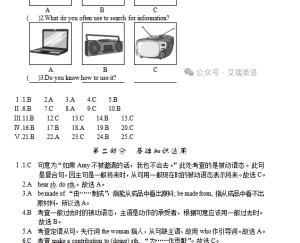
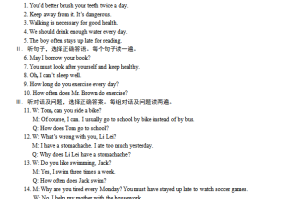



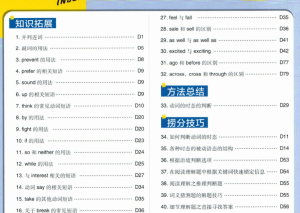
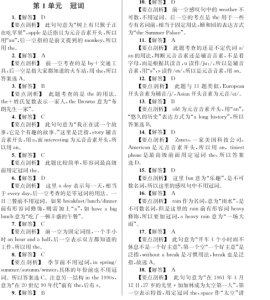
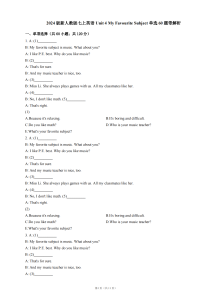



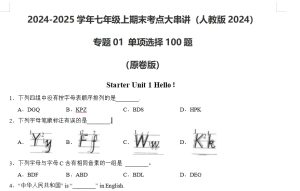



暂无评论内容